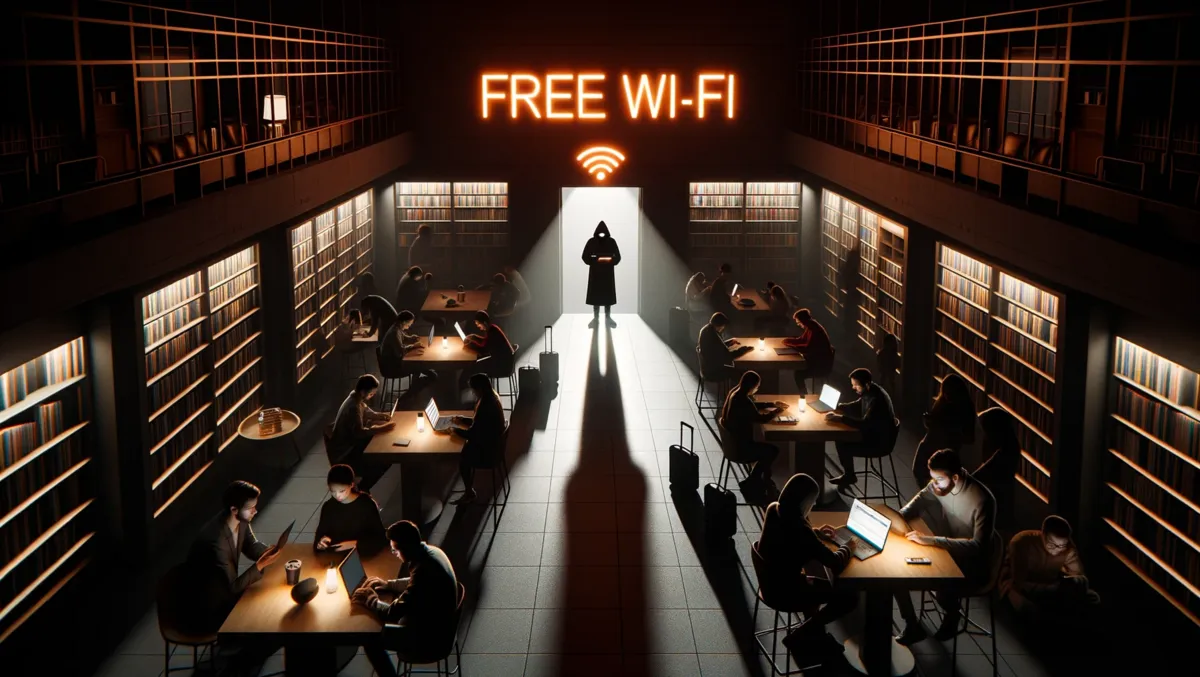
Unverified open Wi-Fi networks expose half of British internet users to risk
Recent research conducted by "All About Cookies," a team dedicated to ensuring internet safety, has unveiled some alarming trends in how people use public Wi-Fi networks and the associated risks.
In today's digital age, many have developed a habit of scanning for available free Wi-Fi in public spaces such as libraries or parks. It's convenient and often a cost-effective way to stay connected while on the go.
The research involved a survey of 1,000 adults exploring their online habits related to Wi-Fi usage. The results shed light on some findings regarding the frequency of public Wi-Fi, habitual behaviour and trust in specific locations.
The study revealed that a staggering 69% of internet users connect to public Wi-Fi networks at least once a week. This highlights the widespread reliance on these networks for internet access, even when people are aware of the potential risks associated with them.
Despite being warned about the potential cybersecurity dangers of connecting to unsecured Wi-Fi networks, habit and convenience appear to outweigh the perceived risks for many internet users. This means that, for a significant portion of the population, the lure of free and accessible Wi-Fi often trumps security concerns.
Interestingly, the research also revealed that certain locations offering public Wi-Fi are more trusted than others. Libraries, for instance, were found to be the most relied upon and trusted sources of free Wi-Fi. In contrast, Wi-Fi offered in public parks was regarded with suspicion and raised significant concerns among users. This suggests that people may place unwarranted trust in certain settings, potentially putting their cybersecurity at risk.
All About Cookies points out that for nearly a quarter of internet users who connect to unsecured networks every day, cybersecurity threats can quickly become a reality. Such threats include the risk of being hacked, exposed to computer viruses, or having personal data stolen. Regular users of unsecured Wi-Fi networks are more likely to fall victim to cybercrime due to these inherent risks.
Dana Hummel, Senior Manager of Digital PR at All About Cookies, is deeply concerned about these findings. She questions why the majority of internet users still connect to networks with questionable Service Set Identifiers (SSIDs) like 'FREEWIFI123,' despite the potential risks. Hummel's concern is well-founded, as these actions may lead to severe consequences in terms of cybersecurity breaches.
This research, funded by All About Cookies, underscores a significant gap in cybersecurity awareness among the general public. As technology continues to shape our daily lives, it becomes increasingly crucial for individuals to stay informed about best internet safety practices and to apply them diligently. With the ubiquity of public Wi-Fi networks and the evolving landscape of cyber threats, individuals should prioritize their online security and exercise caution when connecting to unsecured networks.
Education and awareness can play a pivotal role in reducing the risks associated with public Wi-Fi usage, ensuring a safer digital experience for all.


